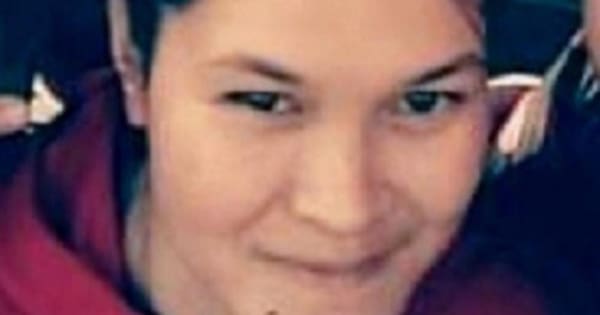A coroner has not been able to find with certainty what caused the death of a new-born boy who was found after sleeping alongside his mother, who also died.
Police at the time called the deaths “an absolute tragedy”.
Tanatui Samuels was born at Auckland Hospital on March 13, 2020.
Three days later he was dead.
He was the son of Emerald Tai and her partner Tana-Tui.
Baby Tanatui was born at 38 weeks after Tai went to hospital in the late stages of labour.
He was healthy, but needed to be put under observation because meconium was found in the in-utero fluid during delivery.
Meconium is the baby’s first stool which a baby normally passes in the first few days after birth.
It can cause serious health issues, including infection, if it’s found while a baby is still in the womb.
Mother asks to be discharged
In a finding released on Wednesday, the coroner Woolley said Tai, 27, asked to be discharged from hospital at about 6pm the next day so she and her baby could go home.
But hospital staff told her she should stay under observation for at least a day after the birth.
She was at high risk of post-partum bleeding because of a fast labour, was anaemic, had a history of bleeding and had five more earlier births.
Tai also had low blood pressure coupled with a high heart rate, the coroner noted.
Hospital staff also advised that baby Tanatui should stay for a full 48 hours because of his exposure to meconium.
Tai signed a “discharge against medical advice” form and was told to monitor her baby for increased temperature or efforts in breathing.
She was also given a pēpi pod.
Tai had not updated her address to Kelston on hospital records, which contained an old address in Blockhouse Bay.
The day after the pair went home a midwife said she would visit that day but went to the incorrect Blockhouse Bay home.
She knocked on the door twice and rang Tai, but she did not answer.
The midwife made a note for the duty midwife to visit the next day.
The morning’s headlines in 90 seconds, including the legal fight to get a New Zealand woman and her child out of US immigration detention, sliding house prices, and Taylor Swift’s big reveal. (Source: 1News)
Mother begins feeling ill
But that night Tai complained of pain in her stomach, her back, hips and buttocks and also said she was feeling hot.
She and baby Tanatui went to sleep on the couch in the lounge.
At about 10am the next day, her partner went to check on them and found them both cold and unresponsive.
The coroner’s report said a forensic pathologist found she died from puerperal sepsis.
It’s also known as postpartum sepsis — a bacterial infection in the genital tract within 10 days of birth, miscarriage or abortion.
The coroner said this used to be very common and that many women died from it.
In modern times, it was thought about 1% to 3% of women having babies were affected by it.
When the health and disability commissioner [HDC] investigated, obstetrician advice said the condition could develop rapidly and be very difficult to diagnose.
Tai had a raised temperature, heightened heart rate, low blood pressure and abdominal pain.
These could have suggested a developing infection, the coroner’s finding said, but could also have been something else.
The HDC accepted in its own investigation that there were no “immediate red flags” from the readings.
Baby Tanatui’s death
On her son, the same forensic pathologist found signs of sepsis infection and acute pneumonia in one of his lungs.
They noted swabs taken from Tai and her baby grew the same type of bacteria, but they advised the infection was not likely to have spread from the placenta or in blood.
Methamphetamine was found in baby Tanatui’s liver — but not found in his mother’s blood taken after she died.
The findings released on Wednesday said this could be explained by the newborn being exposed to P in his home.
The pathologist was not able to reach any conclusion about whether methamphetamine played any part in Tanatui’s death, the coroner said.
He was found sleeping on the couch with his mother in a prone position — an unsafe way to sleep and a risk factor in infant deaths.
The way he was found also indicated he was partly underneath his mother which could have caused him to suffocate.
The coroner ruled baby Tanatui died from either sepsis, or asphyxia from unsafe sleeping, or both.
Coroner Woolley said the pair were co-sleeping and that there were loose blankets and pillows around him which increased the risk of accidental smothering.
Mother’s antenatal care
Tai first went to a community midwife clinic when she was 19 weeks pregnant but it was so busy she could only be seen as a quick review.
She never went to any other appointments over the next four months.
At the same time, a registered midwife tried to make contact with her but was not able to find or get hold of her.
The next time Tai got antenatal care was when she was 37 weeks pregnant, with her blood tests showing she was anaemic.
She was advised to change her address after the birth of her baby.
Changes made at Health New Zealand
The coroner’s ruling said Health New Zealand told the HDC several changes to practices and policies were made after the deaths.
These included training staff and updating guidelines for identifying maternal sepsis, and making a resource for patients.
Guidelines were also made around minimum assessments for patients who did not have a lead maternity carer or who had used minimal antenatal care.
There were also changes to the hospital discharge process and handover to community midwives.
rnz.co.nz









